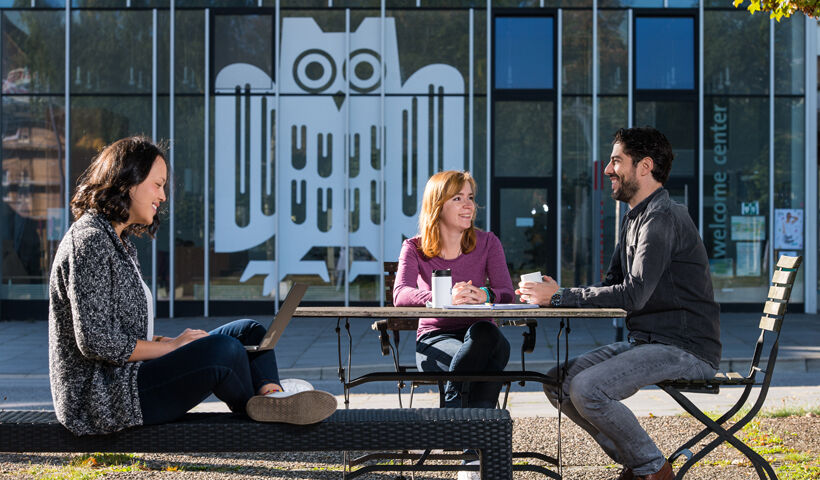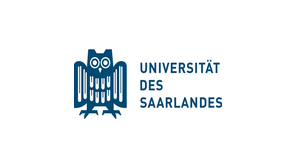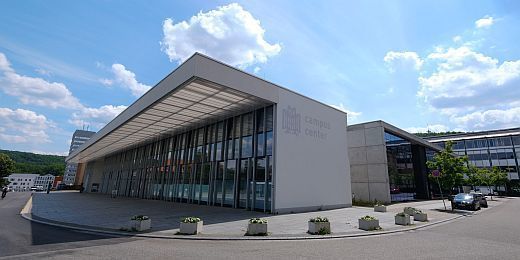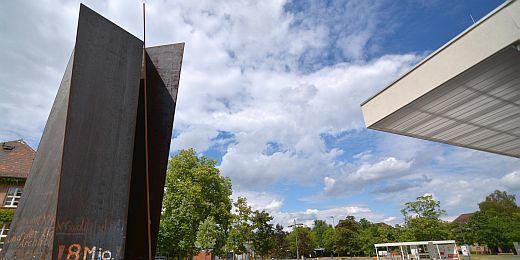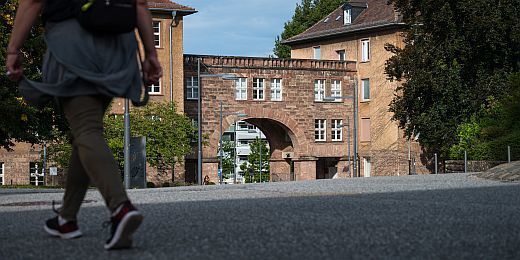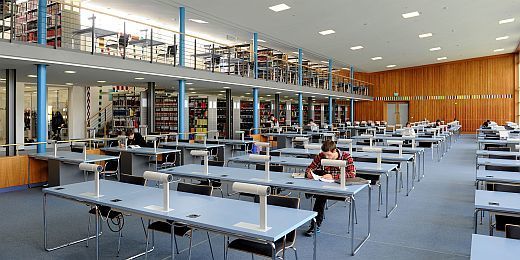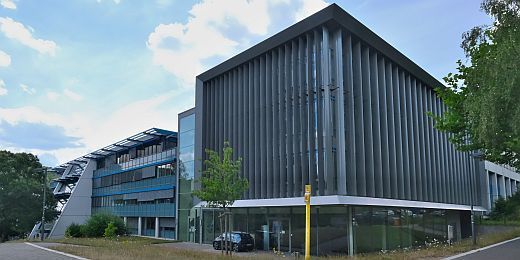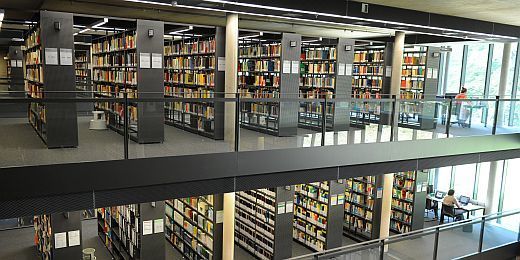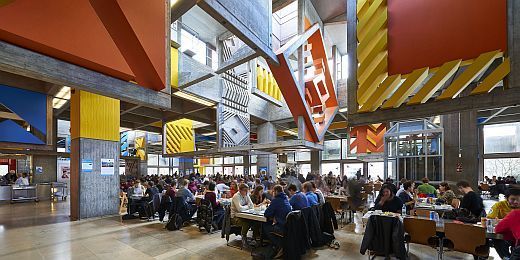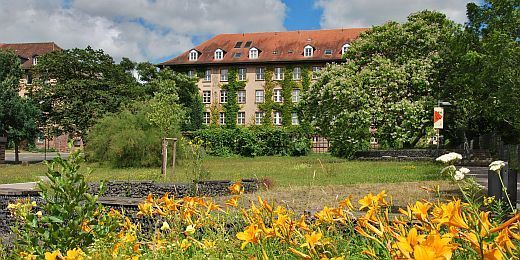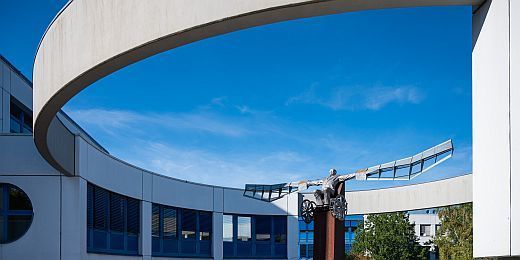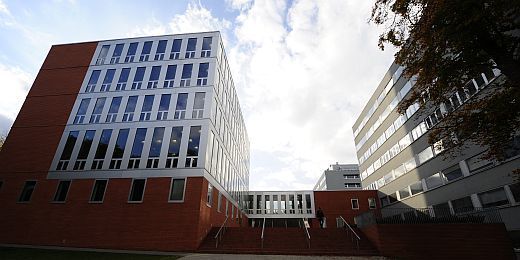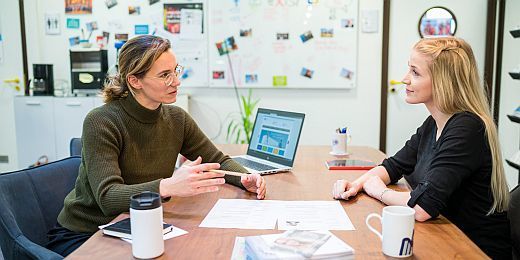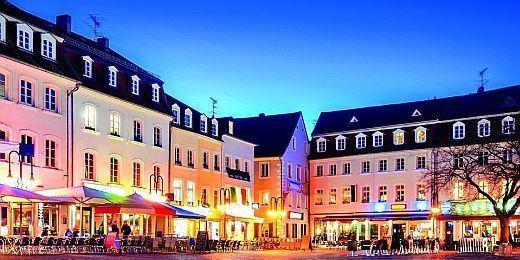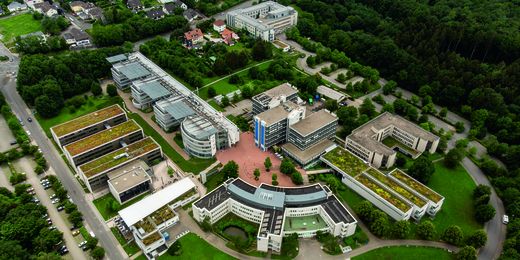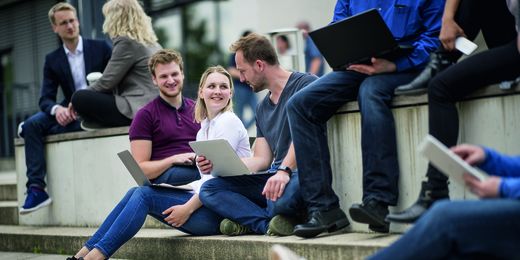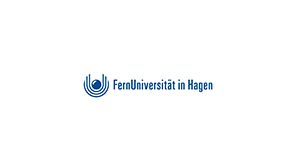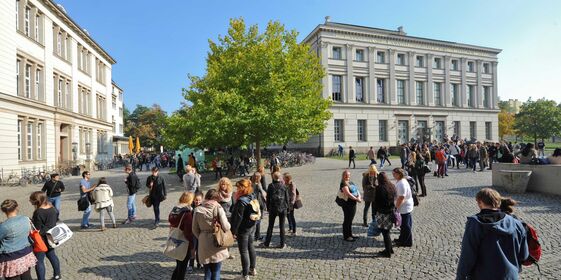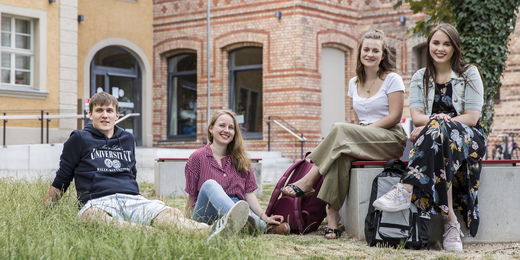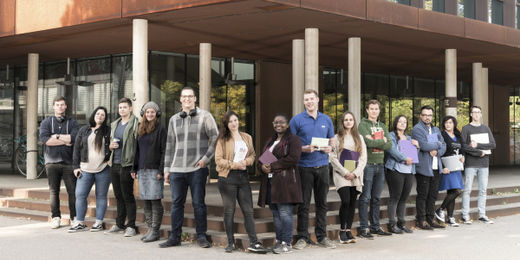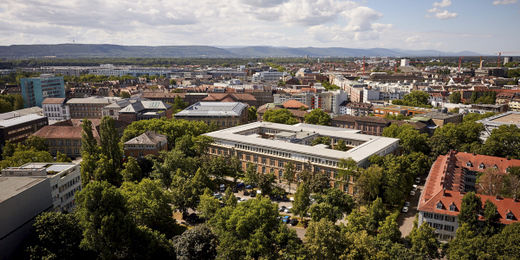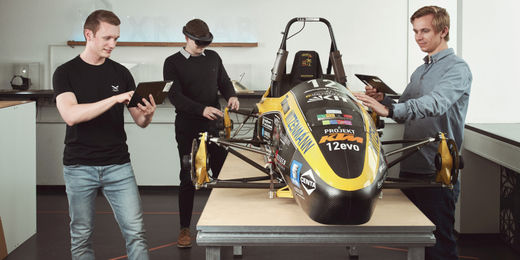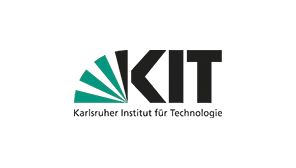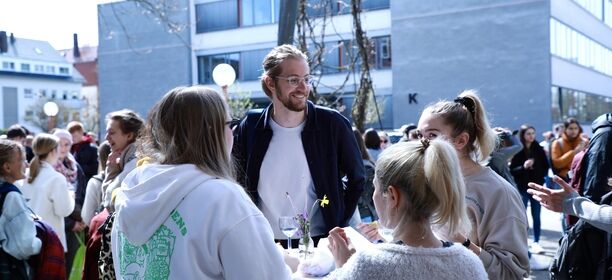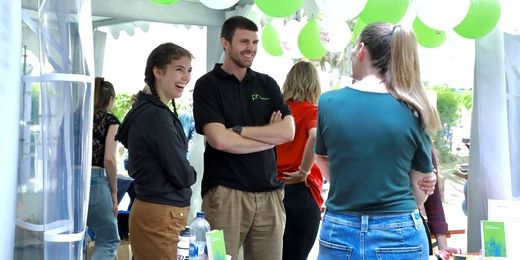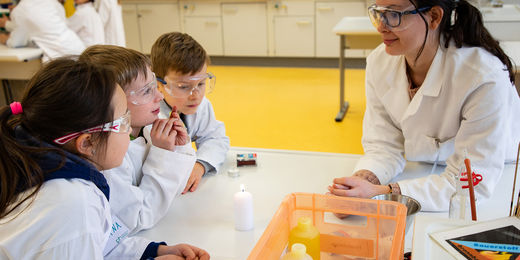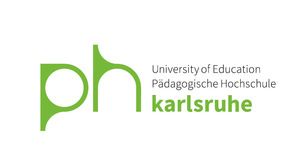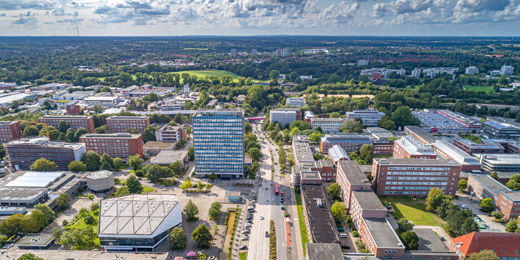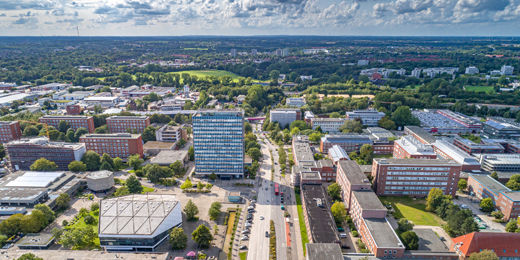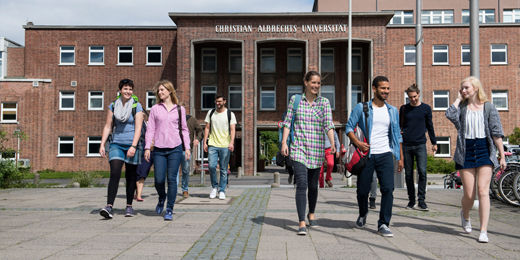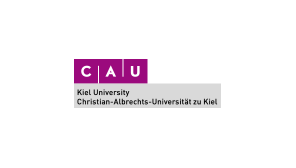Universität des Saarlandes
- Promotionsrecht: Ja
- Trägerschaft: öffentlich-rechtlich
- 1948 gegründet
- 16.122 Studierende
International, forschungsstark, praxisnah. Die passende Uni für DICH!
willkommen an der UdS
Die Universität des Saarlandes ist vor allem durch ihre Spitzenforschung in den Bereichen Informatik, NanoBioMed und Europa international bekannt. Mit zahlreichen Ansiedlungen von Unternehmen und Ausgründungen am Campus, die aktiv gefördert werden, trägt die Universität zum Wissens- und Technologietransfer in der gesamten Saar-Lor-Lux Region bei. Internationalität gehört zum Alltag an der einzigen saarländischen Universität im Drei-Länder-Eck, wo sich Menschen aller Nationen treffen und Studium, Lehre und Forschung international ausgerichtet sind. Dies zeigt sich unter anderem anhand vieler internationaler Studiengänge und Kooperationen sowie der hohen Anzahl ausländischer Studierender und Forschender. Mit intensiver Betreuung, einer modernen Infrastruktur und kurzen Wegen auf dem Campus schafft die Saar-Universität die idealen Bedingungen für dein erfolgreiches Studium.
In unserem breigefächerten Studienangebot findest du sowohl traditionell große Fächer wie Betriebswirtschaftslehre, Jura, Medizin oder Natur- und Ingenieurwissenschaften, als auch neue interdisziplinäre Studiengänge. Hierzu zählen etwa die Bioinformatik, Computerlinguistik oder Systems Engineering.
Verschaff dir selbst den Überblick! Das gesamte Studienangebot findest du hier.
Mit dem Study Finder der Saar-Universität kannst du schon im Vorfeld durch einen Online-Test herausfinden, welches Studium optimal zu dir und deinen Interessen und Fähigkeiten passt. Außerdem kannst du einen Erwartungscheck für dein Wunschfach durchführen. Für weitere Fragen stehen dir unsere Kolleginnen und Kollegen der Zentralen Studienberatung mit Rat und Tat zu Seite.
Passt perfekt?
Dann steht deiner Immatrikulation nichts mehr im Wege!
Campus
66123 Saarbrücken
Tel: 0681 302-0
Fax: 0681 302-2609
uns!
Hochschule im CHE-Ranking abschneiden.
Die Universität des Saarlandes gehört zu den Universitäten.
Ja, du kannst an der Universität des Saarlandes promovieren.
Die Universität des Saarlandes ist eine öffentlich-rechtliche Hochschule. Es gibt staatliche und staatlich anerkannte Hochschulen, die meist in Universitäten, Fachhochschulen (international: University of Applied Sciences) und Kunst- sowie Musikhochschulen unterteilt werden. Der überwiegende Teil der Hochschulen wird vom Staat finanziert und befindet sich daher in staatlicher Trägerschaft. Dort fallen in der Regel nur geringe Semesterbeiträge an. An den privaten Hochschulen hingegen, die sich über private Trägerschaften finanzieren, können wesentlich höhere Studiengebühren anfallen. Einen Weg, die finanziellen Hürden dieser Hochschulen zu umgehen, können Stipendien darstellen.
Es gibt außerdem Hochschulen, die von der protestantischen oder katholischen Kirche betrieben werden.
Die Universität des Saarlandes wurde im Jahr 1948 gegründet.
Insgesamt gibt es 16122 Studierende an der Universität des Saarlandes.
Standorte dieser Hochschule sind Saarbrücken und Homburg.
Hier findest du die Fristen und Termine für deine Bewerbung:
- Vorlesungszeit:
-
14.10.2024 - 07.02.2025
- Studienanfänger:
-
Bis 30.09.2024http://www.uni-saarland.de/immatrikulation
- Hochschulwechsler:
-
Bis 30.09.2024http://www.uni-saarland.de/immatrikulation
- International Studierende aus der Europäischen Union:
-
Bis 15.07.2024und dem Europäischen Wirtschaftsraum siehe: www.uni-saarland.de/studieren/international.html
- International Studierende aus Staaten, die nicht Mitglied der EU sind:
-
Bis 15.07.2024https://www.uni-saarland.de/studieren/international.html
- Studienanfänger:
-
Bis 15.07.2024https://www.uni-saarland.de/studium/bewerbung/grundstaendig/oertlich/termine.html
- Hochschulwechsler:
-
Bis 15.07.2024https://www.uni-saarland.de/studium/bewerbung/grundstaendig/oertlich/termine.html
- International Studierende aus der Europäischen Union:
-
Bis 15.07.2024und dem Europäischen Wirtschaftsraum siehe : www.uni-saarland.de/studieren/international.html
- International Studierende aus Staaten, die nicht Mitglied der EU sind:
-
Bis 15.07.2024https://www.uni-saarland.de/studieren/international.html
- Studienanfänger:
-
Bitte beachten Sie, dass für Masterstudiengänge abweichende Fristen gelten können siehe : www.uni-saarland.de/studium/bewerbung/master.html
- Hochschulwechsler:
-
Bitte beachten Sie, dass für Masterstudiengänge abweichende Fristen gelten können siehe : www.uni-saarland.de/studium/bewerbung/master.html
- International Studierende aus der Europäischen Union:
-
Bitte beachten Sie, dass für Masterstudiengänge abweichende Fristen gelten können siehe : www.uni-saarland.de/studium/bewerbung/master.html
- International Studierende aus Staaten, die nicht Mitglied der EU sind:
-
Bitte beachten Sie, dass für Masterstudiengänge abweichende Fristen gelten können siehe : www.uni-saarland.de/studium/bewerbung/master.html
- Studienanfänger:
-
Bitte beachten Sie, dass für Masterstudiengänge abweichende Fristen gelten können siehe : www.uni-saarland.de/studium/bewerbung/master.html
- Hochschulwechsler:
-
Bitte beachten Sie, dass für Masterstudiengänge abweichende Fristen gelten können siehe : www.uni-saarland.de/studium/bewerbung/master.html
- International Studierende aus der Europäischen Union:
-
Bitte beachten Sie, dass für Masterstudiengänge abweichende Fristen gelten können siehe : www.uni-saarland.de/studium/bewerbung/master.html
- International Studierende aus Staaten, die nicht Mitglied der EU sind:
-
Bitte beachten Sie, dass für Masterstudiengänge abweichende Fristen gelten können siehe : www.uni-saarland.de/studium/bewerbung/master.html
- Vorlesungszeit:
-
15.04.2024 - 26.07.2024
- Studienanfänger:
-
Die Frist ist abgelaufen
- Hochschulwechsler:
-
Die Frist ist abgelaufen
- International Studierende aus der Europäischen Union:
-
Die Frist ist abgelaufen
- International Studierende aus Staaten, die nicht Mitglied der EU sind:
-
Die Frist ist abgelaufen
- Studienanfänger:
-
Die Frist ist abgelaufen
- Hochschulwechsler:
-
Die Frist ist abgelaufen
- International Studierende aus der Europäischen Union:
-
Die Frist ist abgelaufen
- International Studierende aus Staaten, die nicht Mitglied der EU sind:
-
Die Frist ist abgelaufen
- Studienanfänger:
-
Bitte beachten Sie, dass für Masterstudiengänge abweichende Fristen gelten können siehe : www.uni-saarland.de/studium/bewerbung/master.html
- Hochschulwechsler:
-
Bitte beachten Sie, dass für Masterstudiengänge abweichende Fristen gelten können siehe : www.uni-saarland.de/studium/bewerbung/master.html
- International Studierende aus der Europäischen Union:
-
Bitte beachten Sie, dass für Masterstudiengänge abweichende Fristen gelten können siehe : www.uni-saarland.de/studium/bewerbung/master.html
- International Studierende aus Staaten, die nicht Mitglied der EU sind:
-
Bitte beachten Sie, dass für Masterstudiengänge abweichende Fristen gelten können siehe : www.uni-saarland.de/studium/bewerbung/master.html
- Studienanfänger:
-
Bitte beachten Sie, dass für Masterstudiengänge abweichende Fristen gelten können siehe : www.uni-saarland.de/studium/bewerbung/master.html
- Hochschulwechsler:
-
Bitte beachten Sie, dass für Masterstudiengänge abweichende Fristen gelten können siehe : www.uni-saarland.de/studium/bewerbung/master.html
- International Studierende aus der Europäischen Union:
-
und dem Europäischen Wirtschaftsraum siehe: www.uni-saarland.de/studieren/international.html
Bitte beachten Sie, dass für Masterstudiengänge abweichende Fristen gelten können siehe : www.uni-saarland.de/studium/bewerbung/master.html
- International Studierende aus Staaten, die nicht Mitglied der EU sind:
-
Bitte beachten Sie, dass für Masterstudiengänge abweichende Fristen gelten können siehe : www.uni-saarland.de/studium/bewerbung/master.html
Als Fakultät wird eine Gruppe von Fächern oder eine Abteilung mit mehreren Wissenschaftsbereichen bezeichnet. Sie bildet eine
Lehr- und Verwaltungseinheit und ist für die Organisation von Forschung, Lehre und dem Studium an sich des jeweiligen Fachbereichs
verantwortlich.
An der Universität des Saarlandes gibt es folgende Fakultäten und Fachbereiche:
- Vorlesungszeit:
-
14.10.2024 - 07.02.2025
- Studienanfänger:
-
Bis 30.09.2024http://www.uni-saarland.de/immatrikulation
- Hochschulwechsler:
-
Bis 30.09.2024http://www.uni-saarland.de/immatrikulation
- International Studierende aus der Europäischen Union:
-
Bis 15.07.2024und dem Europäischen Wirtschaftsraum siehe: www.uni-saarland.de/studieren/international.html
- International Studierende aus Staaten, die nicht Mitglied der EU sind:
-
Bis 15.07.2024https://www.uni-saarland.de/studieren/international.html
- Studienanfänger:
-
Bis 15.07.2024https://www.uni-saarland.de/studium/bewerbung/grundstaendig/oertlich/termine.html
- Hochschulwechsler:
-
Bis 15.07.2024https://www.uni-saarland.de/studium/bewerbung/grundstaendig/oertlich/termine.html
- International Studierende aus der Europäischen Union:
-
Bis 15.07.2024und dem Europäischen Wirtschaftsraum siehe : www.uni-saarland.de/studieren/international.html
- International Studierende aus Staaten, die nicht Mitglied der EU sind:
-
Bis 15.07.2024https://www.uni-saarland.de/studieren/international.html
- Studienanfänger:
-
Bitte beachten Sie, dass für Masterstudiengänge abweichende Fristen gelten können siehe : www.uni-saarland.de/studium/bewerbung/master.html
- Hochschulwechsler:
-
Bitte beachten Sie, dass für Masterstudiengänge abweichende Fristen gelten können siehe : www.uni-saarland.de/studium/bewerbung/master.html
- International Studierende aus der Europäischen Union:
-
Bitte beachten Sie, dass für Masterstudiengänge abweichende Fristen gelten können siehe : www.uni-saarland.de/studium/bewerbung/master.html
- International Studierende aus Staaten, die nicht Mitglied der EU sind:
-
Bitte beachten Sie, dass für Masterstudiengänge abweichende Fristen gelten können siehe : www.uni-saarland.de/studium/bewerbung/master.html
- Studienanfänger:
-
Bitte beachten Sie, dass für Masterstudiengänge abweichende Fristen gelten können siehe : www.uni-saarland.de/studium/bewerbung/master.html
- Hochschulwechsler:
-
Bitte beachten Sie, dass für Masterstudiengänge abweichende Fristen gelten können siehe : www.uni-saarland.de/studium/bewerbung/master.html
- International Studierende aus der Europäischen Union:
-
Bitte beachten Sie, dass für Masterstudiengänge abweichende Fristen gelten können siehe : www.uni-saarland.de/studium/bewerbung/master.html
- International Studierende aus Staaten, die nicht Mitglied der EU sind:
-
Bitte beachten Sie, dass für Masterstudiengänge abweichende Fristen gelten können siehe : www.uni-saarland.de/studium/bewerbung/master.html
- Vorlesungszeit:
-
15.04.2024 - 26.07.2024
- Studienanfänger:
-
Die Frist ist abgelaufen
- Hochschulwechsler:
-
Die Frist ist abgelaufen
- International Studierende aus der Europäischen Union:
-
Die Frist ist abgelaufen
- International Studierende aus Staaten, die nicht Mitglied der EU sind:
-
Die Frist ist abgelaufen
- Studienanfänger:
-
Die Frist ist abgelaufen
- Hochschulwechsler:
-
Die Frist ist abgelaufen
- International Studierende aus der Europäischen Union:
-
Die Frist ist abgelaufen
- International Studierende aus Staaten, die nicht Mitglied der EU sind:
-
Die Frist ist abgelaufen
- Studienanfänger:
-
Bitte beachten Sie, dass für Masterstudiengänge abweichende Fristen gelten können siehe : www.uni-saarland.de/studium/bewerbung/master.html
- Hochschulwechsler:
-
Bitte beachten Sie, dass für Masterstudiengänge abweichende Fristen gelten können siehe : www.uni-saarland.de/studium/bewerbung/master.html
- International Studierende aus der Europäischen Union:
-
Bitte beachten Sie, dass für Masterstudiengänge abweichende Fristen gelten können siehe : www.uni-saarland.de/studium/bewerbung/master.html
- International Studierende aus Staaten, die nicht Mitglied der EU sind:
-
Bitte beachten Sie, dass für Masterstudiengänge abweichende Fristen gelten können siehe : www.uni-saarland.de/studium/bewerbung/master.html
- Studienanfänger:
-
Bitte beachten Sie, dass für Masterstudiengänge abweichende Fristen gelten können siehe : www.uni-saarland.de/studium/bewerbung/master.html
- Hochschulwechsler:
-
Bitte beachten Sie, dass für Masterstudiengänge abweichende Fristen gelten können siehe : www.uni-saarland.de/studium/bewerbung/master.html
- International Studierende aus der Europäischen Union:
-
und dem Europäischen Wirtschaftsraum siehe: www.uni-saarland.de/studieren/international.html
Bitte beachten Sie, dass für Masterstudiengänge abweichende Fristen gelten können siehe : www.uni-saarland.de/studium/bewerbung/master.html
- International Studierende aus Staaten, die nicht Mitglied der EU sind:
-
Bitte beachten Sie, dass für Masterstudiengänge abweichende Fristen gelten können siehe : www.uni-saarland.de/studium/bewerbung/master.html
Nach dem Studium ist vor der Karriere: Berufsorientiert studieren
Das universitätseigene Career Center bietet durch die Karriereberatung, eine Praktikums- und Stellenbörse oder Workshops zur Berufsvorbereitung hilfreiche Serviceleistungen an. Die optimale Vorbereitung für deine berufliche Zukunft!
Schon früh können Studierende in Forschungsprojekten und als wissenschaftliche Hilfskraft mitarbeiten. Die Saar-Universität zählt zu den forschungsstärksten Einrichtungen in Deutschland und arbeitet mit 14 umliegenden Forschungsinstituten, darunter zwei Max-Planck-Instituten, zwei Leibniz- und zwei Fraunhofer-Instituten, einem Helmholtz-Institut sowie einem Helmholtz-Zentrum zusammen.
Zukünftige Unternehmerinnen und Unternehmer werden am Campus unter anderem durch Gründerberatung und -förderung sowie vielfältige Lehrveranstaltungen zum Thema Existenzgründung unterstützt.
Internationales Flair inklusive: Studieren im Saarland
Der von Wald umgebene Campus Saarbrücken ist in unmittelbarer Nähe zur Innenstadt angesiedelt. Großzügige Grünflächen, Cafés und Restaurants sowie ein Outdoor-Parcours sind nur einige der vielen Wohlfühl-Faktoren vor Ort.
Auch kulturell ist einiges geboten: Musik- und Filmfestivals, das Staatstheater, eine lebendige Altstadt sowie unzählige Clubs und Bars... in Saarbrücken gibt es viel zu erleben. Und trotzdem bietet die Stadt überdurchschnittlich günstige Lebensbedingungen.
Rund 30 Kilometer entfernt in Homburg befinden sich der Campus der Medizinischen Fakultät sowie das Universitätsklinikum. Hier wird das gesamte Spektrum der Medizin angeboten. Das Klinikum nimmt weit über das Saarland hinaus eine führende Rolle in medizinischer Lehre, Forschung und Krankenversorgung wahr.
Weitere Infos findest du in unserem Webbereich Studieren im Saarland.

uns!

